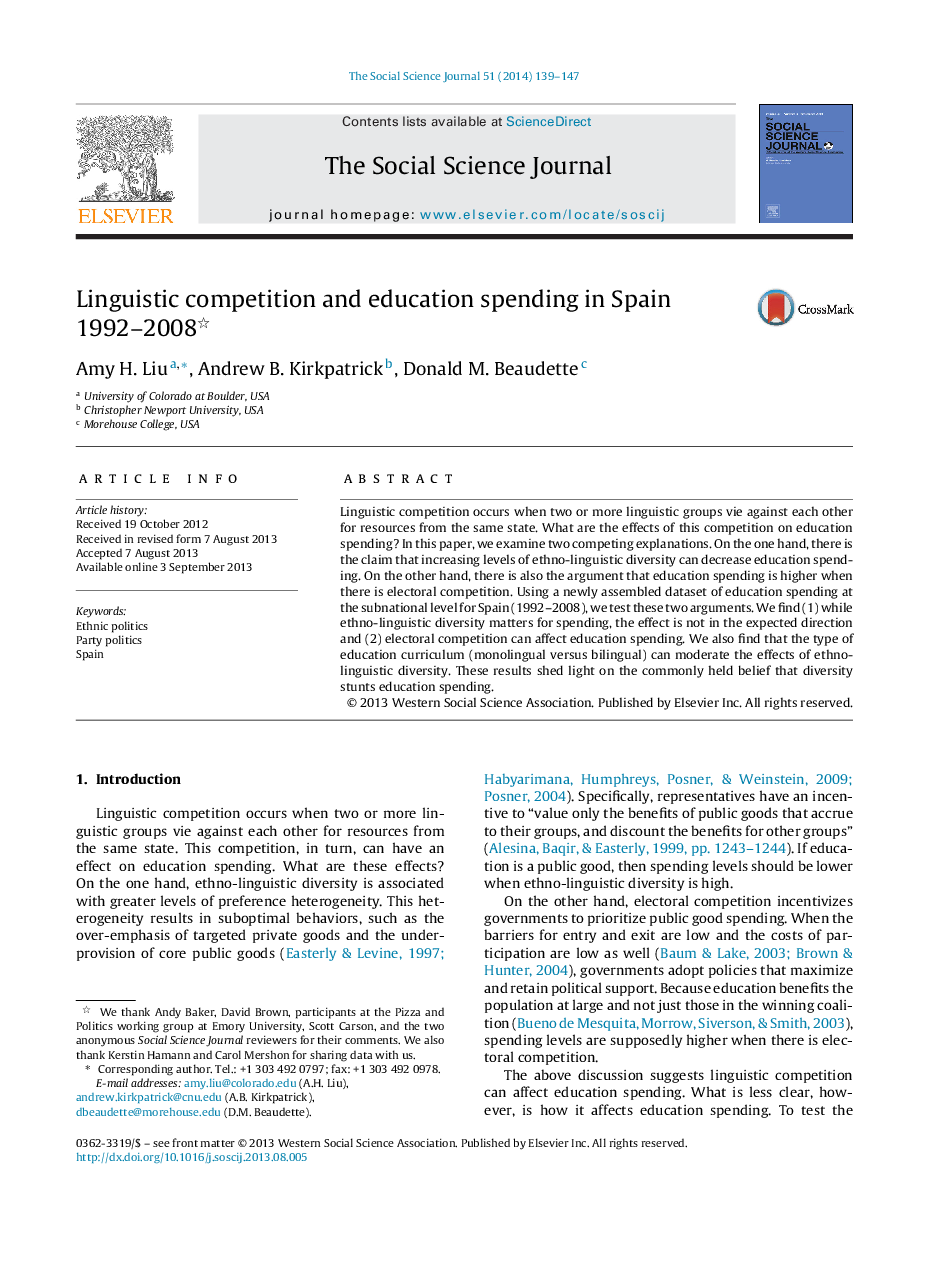| Article ID | Journal | Published Year | Pages | File Type |
|---|---|---|---|---|
| 140187 | The Social Science Journal | 2014 | 9 Pages |
•Theoretically, we focus on the effects of ethno-linguistic diversity and electoral competition on education spending.•Empirically, we use a newly assembled dataset of education spending at the subnational level for Spain (1992–2008).•Ethno-linguistic diversity matters for spending, but the effect is not in the expected direction.•Electoral competition can affect education spending.•The type of education curriculum (i.e., monolingual versus bilingual) can moderate the effects of ethno-linguistic diversity.
Linguistic competition occurs when two or more linguistic groups vie against each other for resources from the same state. What are the effects of this competition on education spending? In this paper, we examine two competing explanations. On the one hand, there is the claim that increasing levels of ethno-linguistic diversity can decrease education spending. On the other hand, there is also the argument that education spending is higher when there is electoral competition. Using a newly assembled dataset of education spending at the subnational level for Spain (1992–2008), we test these two arguments. We find (1) while ethno-linguistic diversity matters for spending, the effect is not in the expected direction and (2) electoral competition can affect education spending. We also find that the type of education curriculum (monolingual versus bilingual) can moderate the effects of ethno-linguistic diversity. These results shed light on the commonly held belief that diversity stunts education spending.
